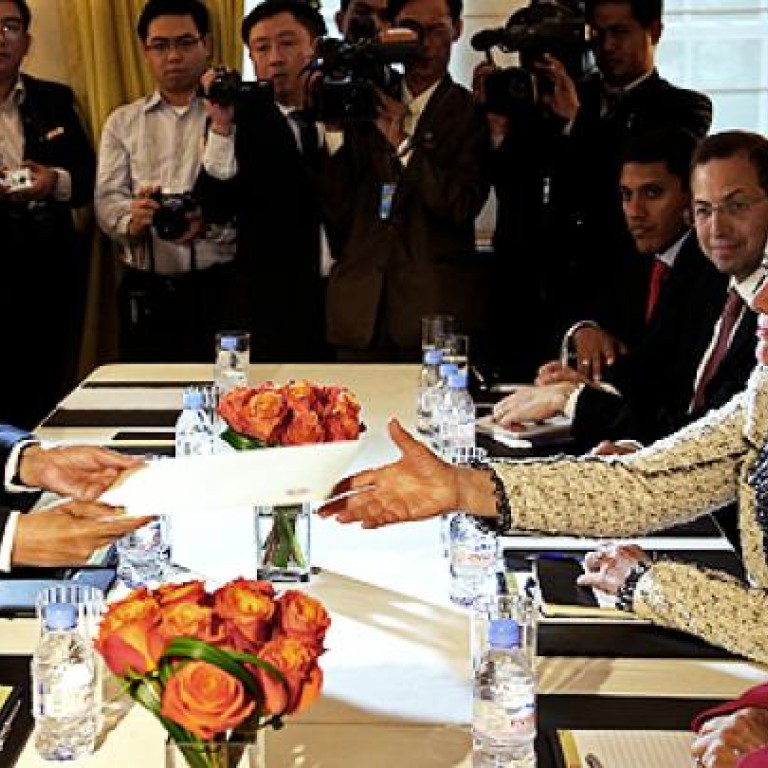
US to ease import ban on Myanmar, Clinton tells Thein Sein
US Secretary of State Hillary Clinton told Myanmar President Thein Sein on Wednesday that the United States would take steps to ease the US ban on imports from the country.
US Secretary of State Hillary Clinton told Myanmar President Thein Sein on Wednesday that the United States would take steps to ease the US ban on imports from the country, a major boon to the Southeast Asian nation as it emerges from years of political and economic isolation.
“In recognition of the continued progress towards reform and in response to requests from both the government and the opposition, the United States is taking the next step in normalising our commercial relationship,” Clinton told Thein Sein in a meeting on the sidelines of the UN General Assembly in New York.
“We will begin the process of easing restrictions on imports of Burmese goods into the United States. We hope this will provide more opportunities for your people to sell their goods into our market,” Clinton said.
Clinton’s announcement marks a further step in the US rapprochement with Myanmar, which offers economic and strategic benefits to both sides.
“We now have diplomatic relations at the ambassador level and the people of Myanmar are very pleased with the easing of economic sanctions by the United States,” Thein Sein said at the meeting, which took place at a New York hotel.
“We are very grateful for the actions of the United States,” he said.
The US Treasury Department last week removed individual sanctions against Thein Sein, a 67-year-old former general who emerged as the unlikely catalyst for a wave of reforms that were unthinkable a year ago. The next step will remove more of the restrictions that isolated his country for two decades, squeezed its tattered economy and pushed it closer into China’s orbit.
Congress has approved a bill that would allow President Barack Obama to waive a ban on US participation in providing development loans from international financial institutions like the World Bank to the former British colony also known as Burma.
But the move to end the US import ban promises far larger benefits, paving the way for greater foreign investment that could create urgently needed jobs.
The European Union set the pace this month by agreeing to grant Myanmar access to its Generalised System of Preferences, a plan that allows poorer countries access to European markets without quotas or duties.
Thein Sein’s reformist, quasi-civilian government took office in March last year, ending five decades of military rule. It has started overhauling Myanmar’s economy, easing media censorship, legalizing trade unions and protests and freeing political prisoners.
The United States has responded with diplomatic and economic gestures, sending Clinton to Myanmar last year as the first US secretary of state to visit in more than 50 years, as well as tentatively easing sanctions this year.
